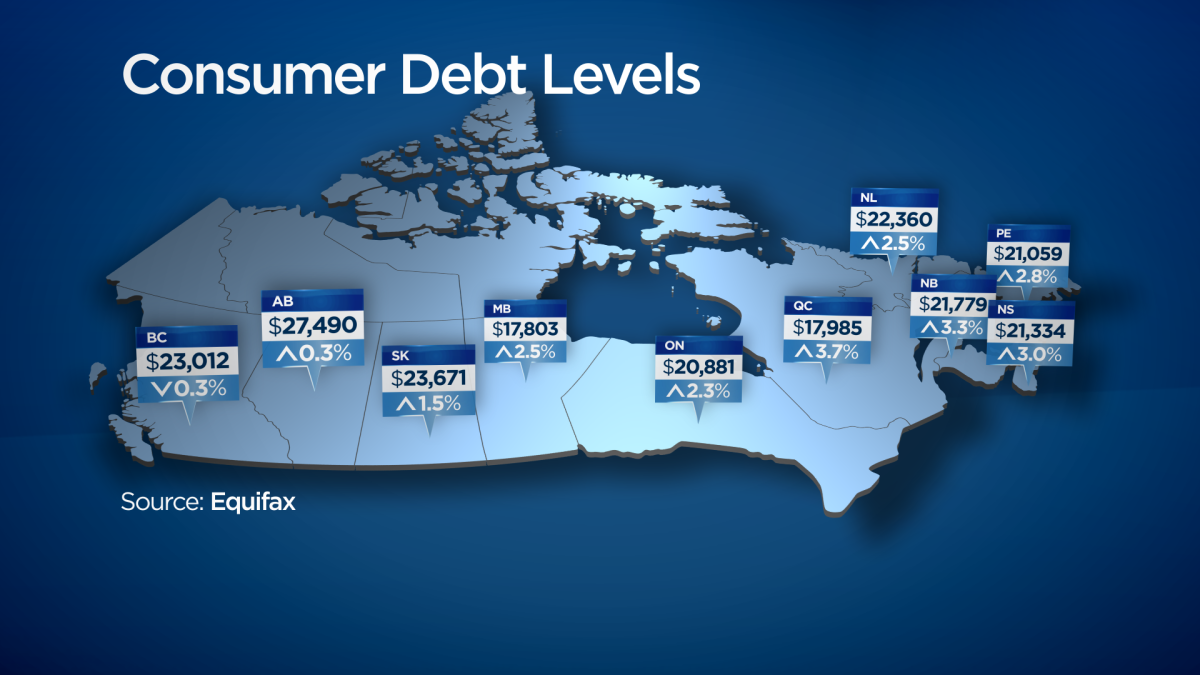The prolonged slump in oil and other commodity prices is starting to catch up with the personal finances of Canadians in resource-dependent provinces, more of whom are struggling to pay down credit-card bills and other debts, new data shows.

The number of personal bankruptcies in Alberta, Saskatchewan and Newfoundland are on the rise, according to data released by credit monitoring agency Equifax Canada on Wednesday.
The three are among the most dependent provinces in the country on energy and resource-related industries.
Each is also posting meaningfully higher 90-day delinquency rates on consumers loans, the agency said, meaning more residents have fallen behind on a payment by at least 90 days.
Average debt loads in those provinces ranks the highest in Canada, growing in recent years as oil and commodity prices climbed alongside jobs and wages during the recovery that followed the 2009 recession.
Alberta pops
Now, layoff notices are piling up and incomes are feeling the pinch. The delinquency rate on consumer loans in Alberta – where the average consumer debt per person ranks highest in Canada at $27,490 — popped 13.4 per cent in the third quarter.
The delinquency rate in Saskatchewan rose 8.5 per cent in Saskatchewan and 5.8 per cent in Newfoundland in the same period. In constrast, virtually every other province showed a declining delinquency rates (see chart).
The delinquency rate fell by double digits in both B.C. and Ontario, Equifax said, and made similar drops in virtually every other province not directly impacted by crude’s sharp decline this year.
Divergent fortunes
The rise in delinquency rates in regions hit hardest by the slide in oil prices underscores the divergence in fortunes between those provinces and more diversified economies not as reliant on resources, like Ontario, B.C. and Quebec.
“Delinquency rates are an indicator that we follow closely and we are now seeing a negative effect in Western Canada,” Regina Malina, senior director of decision insights at Equifax Canada, said. “The same holds true in Newfoundland — essentially anywhere in the country where the economy is impacted by oil.”
Here’s as look at the average consumer debt load per person by province, and the percentage change between the third quarter of this year and the same stretch last year:



Comments